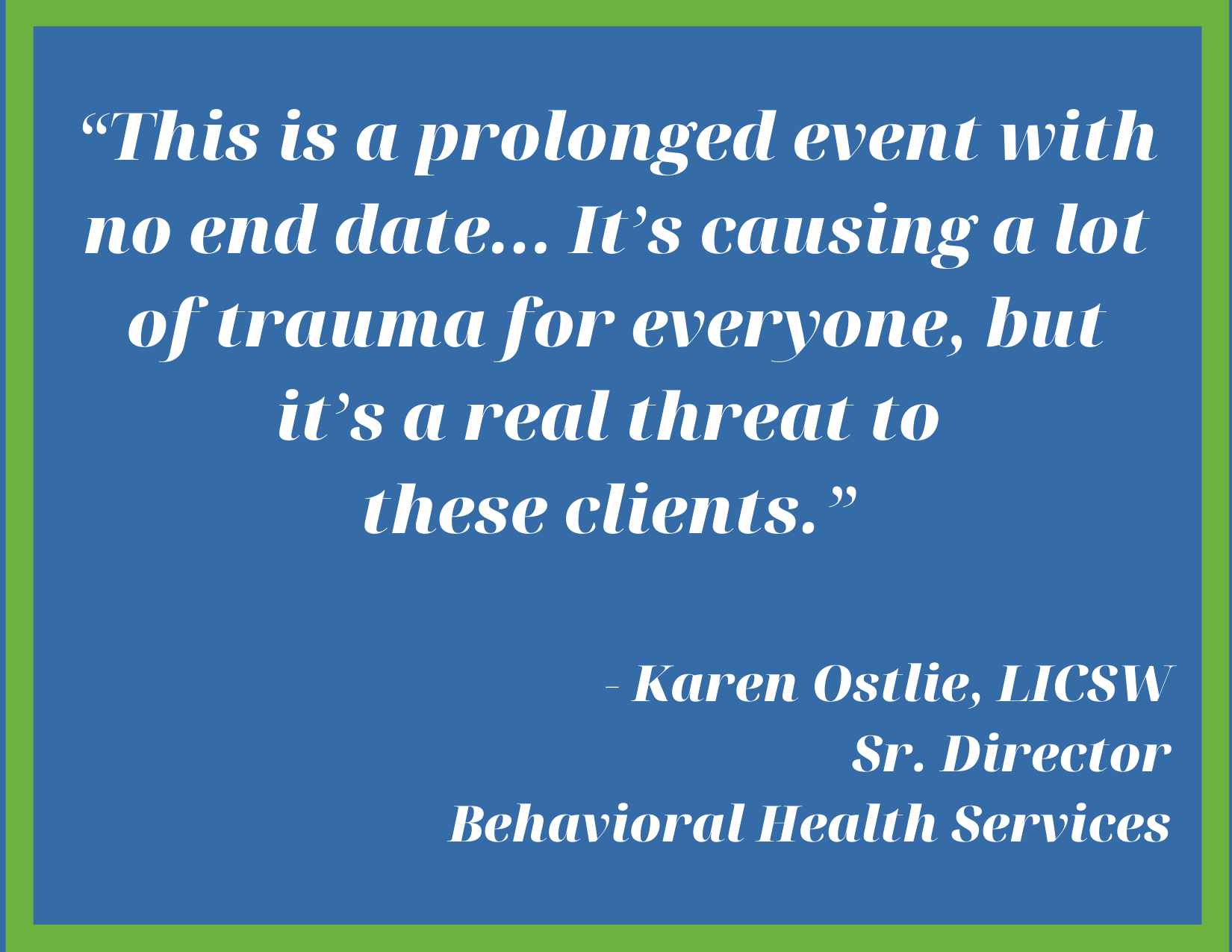
Many Washingtonians who are homeless or live in poverty also struggle with mental health issues. Catholic Charities DC’s behavioral health department provides this vulnerable population with the care and community they need to lead more independent lives. But once the pandemic shut down most in-person medical services, the team was forced to adapt its services to accommodate the changing needs of their clients amid uncertain circumstances.
In a normal year, these specialists treat hundreds of patients each month, providing in-person services including counseling and medication administration for conditions such as depression, addiction, and schizophrenia. Starting in March, however, the team moved many of its services to a telehealth approach, using a variety of platforms depending on patients’ access to and familiarity with this technology. However, the transition has not been without challenges.
“There’s been a big learning curve as our psychiatrists have moved to telehealth,” said Karen Ostlie, senior director of Catholic Charities DC’s behavioral health services. “They’re working the same hours, but they’ve had to spend more time teaching clients how to use these new platforms and navigating their technological challenges.”
For some services, staff implemented a hybrid model that incorporates telehealth appointments with limited in-person treatment. The Assertive Community Treatment (ACT) staff has divided into two teams that alternate between working remotely and going into the community to serve the most challenging clients, whose mental health conditions cannot be stabilized with medication. These clients, many of whom have experienced frequent psychiatric hospitalizations and suffer from other medical conditions, cannot survive without specialized support – pandemic or not.
Keeping clients’ overall health in mind during this crisis, the team works to find solutions to some of the problems clients consistently face. In June, ACT staff helped a homeless client qualify for a housing voucher, which he received later that month. The team even conducted virtual tours to help him as he selected a new apartment.
But for our behavioral health patients who rely on medications or other treatments to stabilize their symptoms, the staff has maintained in-person appointments on a limited basis. These appointments closely follow safety protocols, including contact tracing, PPE for staff and clients, and regular health screenings before medication is administered.
The team, which offers masks to those clients without them, also works diligently to educate clients about the virus and the best practices to keep safe.
Like program staff members across the agency, the behavioral health team goes above and beyond to engage and support their clients. The staff is dedicated to doing what it takes to assist their clients, including buying and delivering groceries, securing housing, and paying phone bills.
In one profound example, two members of the department’s Health Homes program visited a client who had disengaged from care. They found him sitting alone in his wheelchair not having bathed or eaten. In an extraordinary demonstration of compassionate care, they bathed and fed him, and drove him to the hospital for a medical assessment.
These unprecedented circumstances are overwhelming for all. But for these behavioral health clients, the pandemic has intensified their conditions.
“This is a prolonged event with no end date,” Ostlie said. “The increased anxiety for a long period of time is cumulative and could have a much longer-lasting impact on mental health. There’s no sense of security or safety, and just this loss of control. It’s causing a lot of trauma for everyone, but it’s a real threat to these clients, many of whom have histories of trauma.”
To help support Catholic Charities DC’s COVID-19 response, including our behavioral health services, please visit catholiccharitiesdc.org/donate.